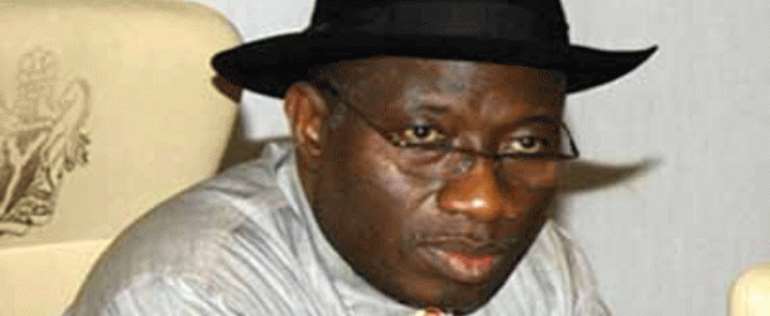Budget: Jonathan seeks AGF's advice on N'Assembly's power

President Goodluck Jonathan has written to the Attorney General of the Federation and Minister of Justice Mohammed Adoke, seeking his advice on the veto power of the National Assembly, following the delay in signing the 2013 budget.
The Chief Economic Adviser to the President, Dr. Nwanze Okeidegbe, said this on Sunday in Abuja during an interview with journalists.
He said the advice had become necessary owing to the unresolved issues on the budget between the executive and the legislature.
He said, 'President Goodluck Jonathan wants to sign the 2013 budget as soon as possible if our discussions with the National Assembly lead to a resolution of certain key issues.
'So we definitely want budget implementation to begin as soon as possible so that Nigerians can start enjoying the many benefits in the budget
'The National Assembly returned the budget in December 2012. Upon review by the executive, some grey areas were identified and needed to be resolved.
'We don't want the current situation surrounding the budget to degenerate into an impasse because Nigerians want results not disagreements. That is why we have asked the Attorney General of the Federation to furnish us with legal advice on the constitutionality of a veto and its application.'
He also said it would be difficult for the Federal Government to pay salaries with the personnel votes passed by the lawmakers.
He said, 'There were differences in what the executive submitted in the votes for personnel and what came back from the National Assembly as the votes were cut down. This has remained unresolved. It would be difficult to pay salaries with the personnel votes they passed and this may lead to industrial challenges.'
The Chief Economic Adviser attributed the delay in signing the budget to constituency projects injected into the budget by the lawmakers.
He said, 'There is an issue on constituency project which is on the table and discussion is still ongoing and it is very difficult to give a definite answer on the matter when discussions are ongoing but we are making progress in reaching understanding and accommodation on the issues on the table.
'On capital votes, there were some reallocations; some went up and some went down and some were removed, thus making it difficult to implement. As a result of that, we have pointed out those areas and both the National Assembly and the executive are discussing with a view to resolving them.'
Okeidegbe however pointed out that in the interim, the executive and lawmakers had reached an understanding on how government activities would be managed pending when the budget would be signed
Meanwhile, the House of Representatives said it would not go to court to seek any interpretation on which arm of government, between the Legislature and the Executive had the powers to appropriate funds in national budgets.
The House noted that such a move was unnecessary and would further portray it as undermining the power of appropriation already conferred on the National Assembly under the 1999 Constitution (as amended).
'We don't have any reasons to go to court because we know our powers.
'Rather, it is the executive that should go to court; they are the ones doubting the powers of the National Assembly to appropriate funds each budget year. We won't go to court', the Chairman, House Committee on Appropriations, Mr. John Enoh, stated in Abuja.
Enoh was reacting to the delayed in the N4.9tr 2013 budget by President Goodluck Jonathan.
The details of the budget were transmitted to Jonathan on January 14 by the Office of the Clerk to the National Assembly, Mr. Salisu Maikasuwa.
However, the President has not appended his signature to the budget. A point of disagreement is said to be the jacking up of the budget by N63bn by lawmakers, built largely into their constituency projects.
Another cause of discord is believed to be the crude oil benchmark of the budget, which was raised from Jonathan's original proposal of $75 to $79 per barrel of crude by lawmakers on December 20, 2012.
A series of meetings held between the President and the leadership of the National Assembly lately have failed to resolve the differences.
Enoh argued that the legislature had played its constitutional role of appropriation, adding that lawmakers expected Jonathan to play his own part by signing the budget.
He claimed said, the 'talks about budget padding' were strange to members of the National Assembly when all they did was to allocate funds to projects as they deemed fit.
Enoh added, 'The language of padding is not civil in a presidential democracy. We are a legislature, not a rubber-stamp.
'Some things must change in the budget, different from how they came.
'Sometimes, we move funds to save certain projects from being abandoned.'
On the alleged inflation of the budget to make provisions for constituency projects, Enoh responded that 'the issue of unimplementable constituency projects has been there over the years.'
